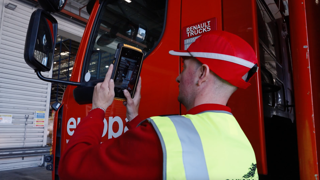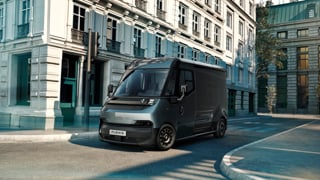By Paul Hollick, chair of the Association of Fleet Professionals (AFP)
While the profile of fleet managers in many organisations has risen substantially in the wake of electrification, the role remains annoyingly underrated in others. This means that some fleet managers don’t have their own company car.
Ultimately, of course, we should all be doing everything possible to reduce the numbers of corporate journeys but for most fleet managers, there is a strong case for being allocated your own vehicle or an equivalent mobility allowance.
Here are five key points for creating an argument that you can submit to the board or other senior management:
1. You have to visit suppliers - Almost all fleet manager roles involve dealing with other organisations, meaning anything from contract hire companies to garages. While of course, most of the conversations that you need to have can be undertaken online or by phone, some definitely require face-to-face interaction. If you are commissioning a van racking design, for example, there is no substitute for visiting the converter’s factory and seeing how it works in person.
2. You need to understand policy first hand - Writing and creating fleet policy but not actually experiencing it in action means that any fleet manager will only be able to do their job to a fraction of their potential. If drivers complain that part of your fleet strategy is unworkable or needs modification, or flag up a potential new problem, then having seen that issue first hand means that you will know whether to take it seriously and be able to better understand how to tackle it.
3. You should be part of electrification - In any fleet where electrification is underway, there will be a whole range of new challenges to be faced and without having operated an electric car or van yourself, the fleet manager is left a little in the dark. Dealing with the concerns of drivers who are struggling with unreliable access to motorway chargers, for example, is undeniably more difficult if you haven’t experienced those problems yourself.
4. You have to attend conferences and other events - In 2024, fleet management is not a solitary profession. Regular interaction with peers is essential to ensure that you are up-to-date with the latest thinking when it comes to everything from zero emissions strategies to creating salary sacrifice schemes. Having your own vehicle to attend events, such as those held by the Association of Fleet Professionals, is arguably essential.
5. You need to lead by example - In a way, this is the most important point in favour of your own car. If you’re asking other employees to follow a new policy – for example, simply introducing a structured transition into electric cars – and you’re turning up at work every day in a five-year-old diesel hatchback, then your arguments have much less impact than if you can show that you are driving a company electric car successfully.
Of course, there are other good reasons for being allocated your company car but hopefully, these will prove persuasive within your own organisation. Good luck.



















Login to comment
Comments
No comments have been made yet.